Gulab tells me that there’s nothing wrong with the mango. “It just bruises when it falls,” she says, “but remove a few layers and it gets sweeter as you eat it.”
The sun burns brightly as we walk, forty-two degrees centigrade beating like a drum over wrinkled men sleeping on the dusty side-walk, over bleating goats tied to electric poles, and zigzagging rickshaws brokering deals with blaring scooters for a sliver of space on the street. Merchants wave their hands at unrelenting hagglers, a blacksmith wields his hammer to straighten the edge of a metal bowl, and a eleven-year-old girl eats a mango. This is Gulab’s home, a 100-metre stretch of unembellished road fighting with itself to survive.
She tells me her bare feet don’t burn as much anymore on the hot tar, and “if you run fast enough, you barely even get to know.” She smiles broadly then, hopping as she describes the pictures flashing through the warehouse of her memory, remembering a painting of playtime from yesterday, as well as awaiting the evening that is yet to come.
In this 100 metre lane running parallel to the posterior wall of India’s oldest mosque, dozens of Old Delhi’s homeless families find a basecamp, accommodating their bodies to fit the environment that surrounds them. This is a space of purgatory — a perennial waiting room for those hoping to rise above circumstance but who also understand that even in the shadow of the Jama Masjid, there must be practicality to prayer. No one knows this better than Gulab and her friends, because while her parents are out hustling for wages, she has had to build herself her own toolkit of survival.
As we walk a little further, the crowded and veiled underworld of Meena Bazar crashes onto us like a sudden explosion of confetti. Sheets of patchwork fabric flutter in the wind, colouring the shade with silhouetted hues of oranges and reds that suspend the reality of the sun for a passing moment. In the old world of Delhi however, the respite of covers above your head comes at a cost — Meena Bazar is notorious for pickpockets and petty thieves, who use the unsteady jostle of a merchant market to cut purses with sharp knives.
In this part of the world, all shadows are claimed.
Gulab halts me with her tiny hand, instructs me to place my bag in front of my torso. She pauses for a moment, her four-foot frame alerting to attention. Through the furrow of her brows, I can see her childlike mind working overtime to determine the odds of my survival through this corridor of trickery. She decides that I will make it. “Don’t worry,” she reassures me, “I’m with you.” People without possessions generally aren’t afraid of thieves.
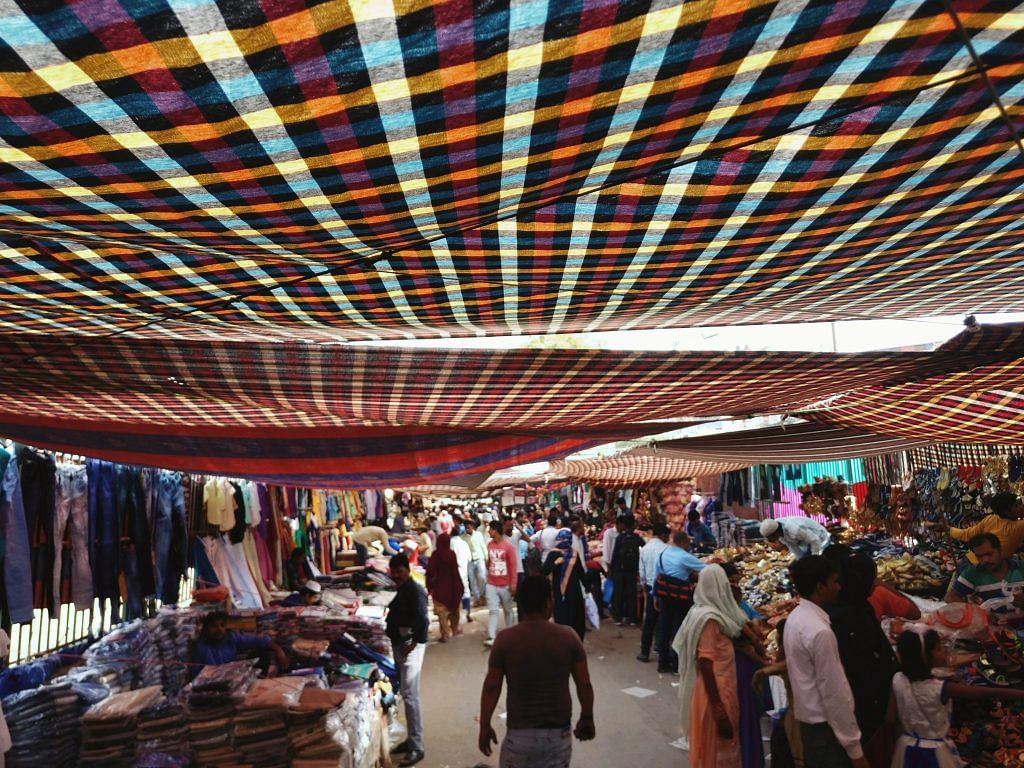
By late afternoon, we have looped back around to where I first met her, and along the way, Gulab has managed to procure her daily water donation from Hare Bhare Shah’s well, tea from Ustad’s Tea Point, food for Rs 10 from the nameless kitchen at one end of Meena Bazar, and has also spotted an ‘angrez’ (foreigner) filled bus pulling up towards the main gate. It has become clear, that life for Gulab and her friends has settled into a routine based on a series of intuitive and strategic decisions that perhaps she isn’t even aware she makes.
The Masjid has become the pivot around which Gulab’s life-cycle of dependencies revolves: Her personal wheel of misfortune, her private clock of need. For Gulab, who exists without a watch on her wrist or a phone in her pocket, marking time means listening for the Azan over the loudspeakers. Each call to prayer tolls like a bell on a watch-tower, dividing the chaos of unmapped time into five distinguishable segments of 24 hours. When men kneel for the fourth time that day, Gulab knows it is her time to play.
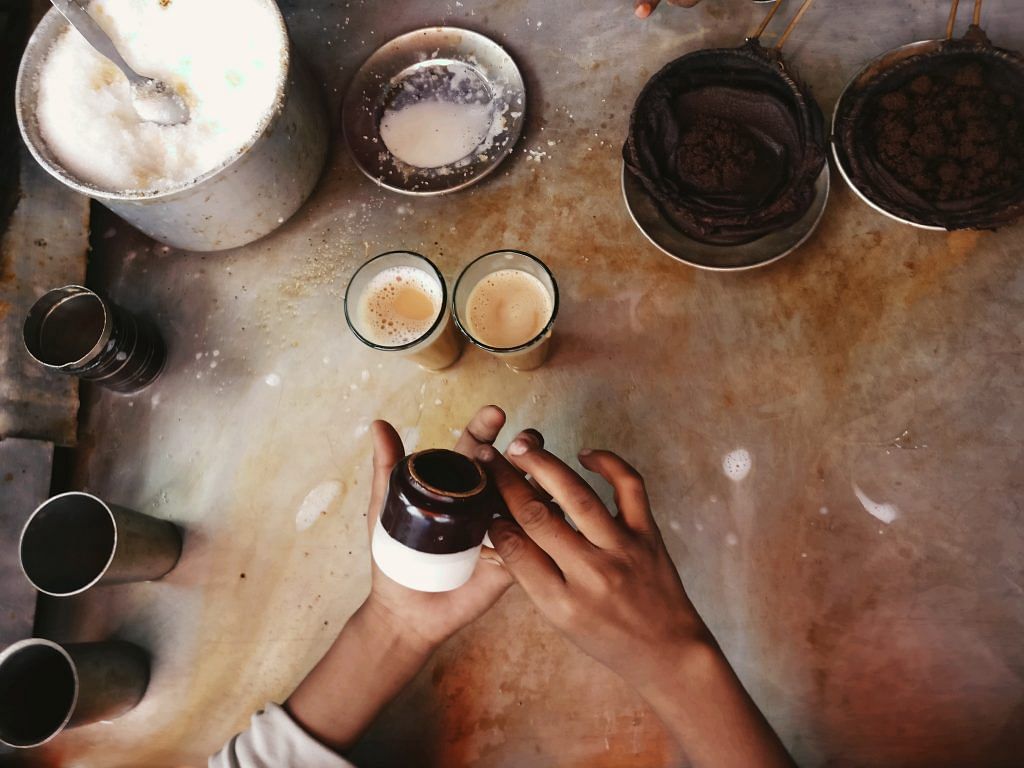
A girl in a pink burkha so long that it touches the backs of her knees, Gulab fills her empty pockets with the confidence of someone with little to lose. Two days ago, she picked a fight with Rabia from two lanes down over a breach of trust. “Parents don’t have to know where you are all the time,” she says indignantly when I ask about the circumstances surrounding the tussle. Fifteen-year-old Rabia denies it now — both the duplicity, as well as the “you should see how hard she slapped her” slap from a nine-year-old. The organic hierarchy of age among children has been breached, and Gulab’s friends are sure there will be consequences to this transgression.
I press for more but Gulab has now withdrawn into a determined silence informed by the guilt of her own violence. She sighs, frowns for a brief second, and then just as suddenly, shakes vulnerability off her like dust. In the momentary crack in her veneer, I find, she is fallible. Like her mother, she keeps her cards close to her chest, fluctuating between protecting this outsider from petty thieves, and protecting herself from this outsider. “A didi came before also to talk to us,” she says. “They come every year.” I hear the echo of her mother in her words.
Two hours ago, Gulab’s mother had stretched her hand across the distance between us to ask for my business card. As I was being welcomed to a makeshift metal canopy formed by the strategic alignment of her husband and brother’s rickshaws, the hair on my arms stood straight. Pupils dilated, and breath short, I couldn’t help but feel that this was a test of my true allegiances — a hug feeling for a wire under my shirt, a handshake checking my pulse. I fell quiet, asking about their job prospects, assigning myself more willingness to make change than I could promise. “Make sure you take her number,” she instructed her son Sameem.
Fifty-five-year-old Saleem, Gulab’s uncle, stood just outside the periphery of my vision. Huddled inside a bubble of heat so thick and tenacious that it sat like weights on top of bent shoulders, the drawl of Saleem’s voice reached me with delay — riding the wave of his own exhaustion, words getting stuck in the crevices of dried lips and a parched tongue. “Just see if you can do anything about getting us a home,” he said, almost inaudibly. “Nothing happens here.”
They spoke of police that came with bulldozers and authoritative conviction “five years ago,” knocking down slums in Delhi on state order. In the fine rubble of obliterated dwellings, they also accidentally left behind a marker in time — a yardstick of loss by which Gulab’s parents would come to negotiate and understand their present condition. Now they wait on the patri, marinading in the nostalgia of better days as they extend their hand for your business card — all they want they tell me, is accountability for a future that was denied to them.
Gulab’s grandparents back home in Bihar do not know she begs for money. Her friends speak on her behalf, softly, and with restraint, understanding almost intuitively that some stories need to be handled with care. “They think she goes to school,” they tell me, raising their eyes from downturned heads as they watch for the contours of my face to channel the judgment of the world. For Gulab, shame takes the form of her parent’s compromise, and the truth of her life is dusted under the blanket of a big-city narrative that failed to provide shelter to the dreams of her family. Even her own mother told me that all the children of the parti go to school, and while it is true that some of them do, her own daughter hasn’t sat on the wooden benches of a classroom for two years now.
It is in Gulab’s absence that the story of her life takes shape. She has left me under the cool shadow of an ageing tree, where children return from a day’s work of begging to play hide and seek with rays of the sun that pierce a criss-crossed canopy of fragile branches and leaves. Shadows dance across their face as her friends shuffle into a circle around me, brimming to the surface with expectation, interrupting each other to provide nuggets of information they hope I’ll write down. “Once a white lady handed Gulab a two thousand rupee note, and ever since then she stopped going to school. I think she realised that there’s more opportunity here than there,” Nazrana tells me, glancing furtively back at Gate number 7 of the Masjid, almost as if her words might have willed tourists into existence. “Busses 1,2,3,4” they count on their fingers, pressing tiny thumbs into index fingers to keep track of the math they once learnt in school.
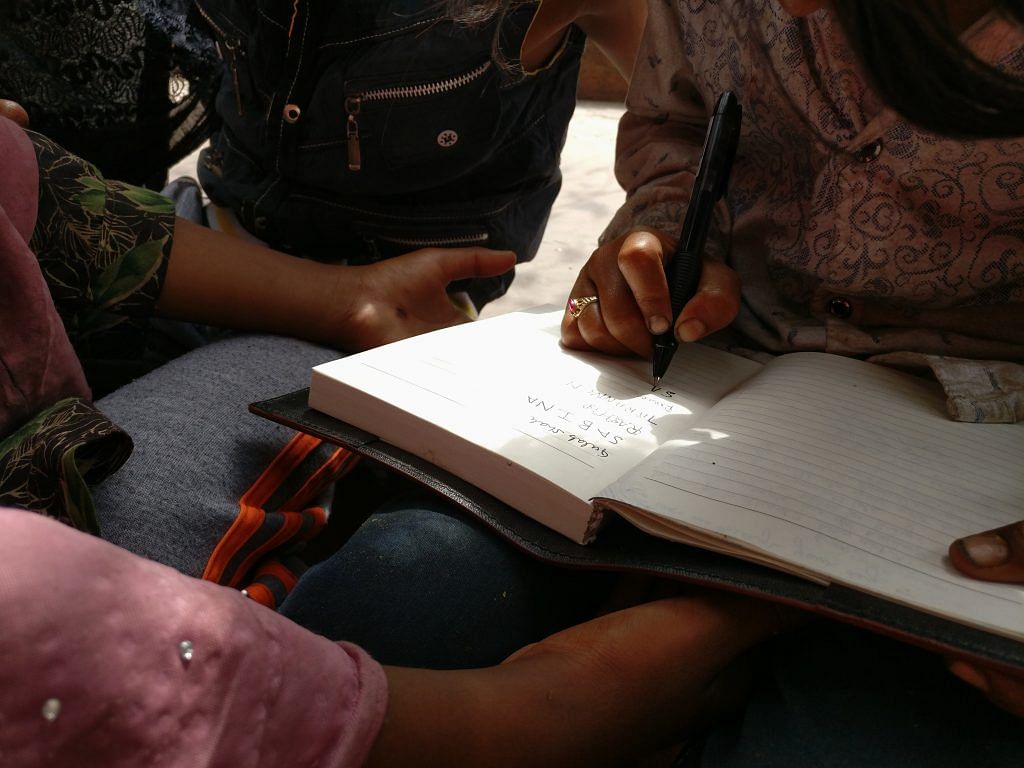
In time, fascination with the curious, sweaty lady who carries a tattered leather notepad wears thin, and the children disperse to resume the routine of their daily lives. Only Sameem remains, Gulab’s brother — a quiet boy of ten on the verge of discovering the importance of a son in an Indian household. In the lingering silence his friends left behind, the exuberant performance of childhood releases its held breath, takes a moment to re-adjust to the calm introspection of solitude. “It’s very difficult driving a rickshaw,” he tells me, “But with the money he makes we manage to afford medicines for my mother.” A moment’s pause, a hand placed on a shoulder, and whisper in the silence — “She finds it difficult to breathe sometimes.” In the distance, I see Gulab running towards us with a smile on her face.
She takes my hand, and we walk again.
Near Gate number 7, Anil Bhai guards the entrance to the toilet with a register. “He’s a Hindu,” Gulab informs me, “just like you.” “But sometimes he even lets us use the toilet for free,” Sameem clarifies. My head is covered by a peach-coloured scarf, an instinctive shield from the harsh sun that I had hoped would unintentionally act as a disguise. As someone with the privilege to identify as an agnostic, faith has largely been relegated to drawing room theoreticism in my world. My inexperience exposed, I approach with caution for clarification — “You have a tattoo on your left hand, Muslims aren’t allowed to get those.”
In this anachronistic microcosm of what was once Shahjahanabad, even the children understand that there is strength in numbers. In a world rapidly colliding with the worst parts of itself, their ability to recognise differences in identity is a skill that may someday determine whether they live or die. To not see, or hear, or smell the world as they move through it is not an option on the patri; there is nothing to mediate the reality which surrounds you — for Gulab, not even a pair slippers, and perhaps when she grows up and moves away, not even the shadow of the Masjid.
Darkness is beginning to fall over the city, and soon the Azan will be heard again. Nazrana, Sameem and the rest of Gulab’s friends beckon her from a distance — the clock will soon strike for playtime. Gulab looks at me with impatient eyes, seeking permission, shuffling her feet, waving at her friends walking away from her as she asks me with tentative hope, “Didi you’ll come tomorrow again right?”
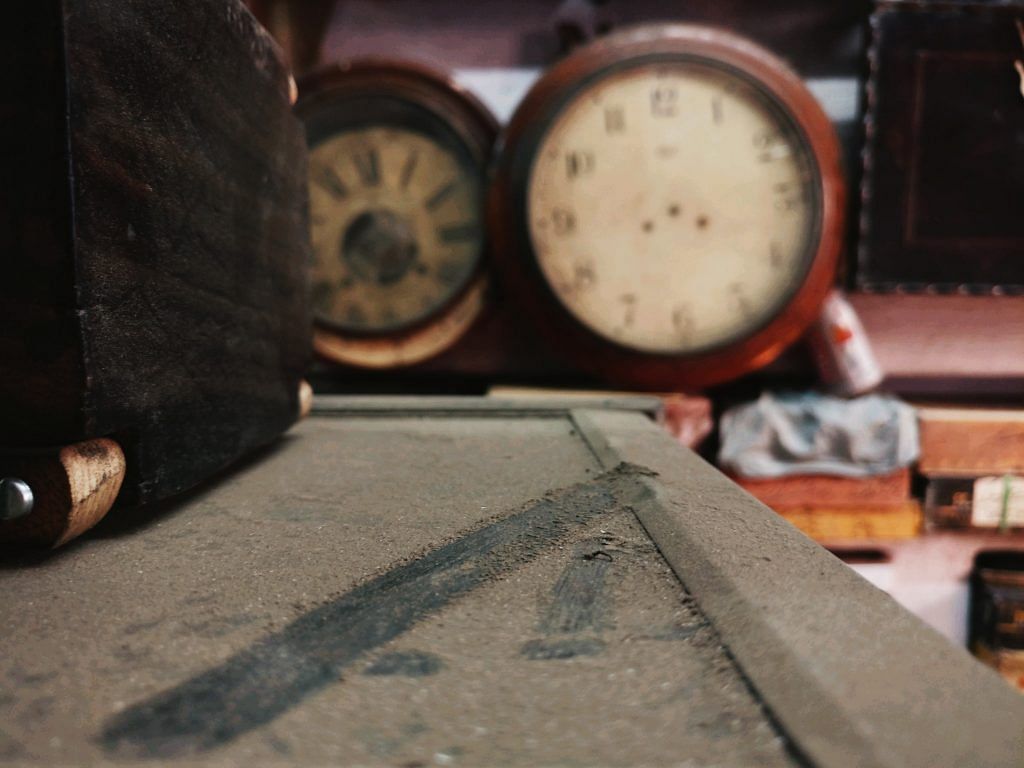
I tell her I’ll try, but the chances are unlikely. She frowns for a momentary second, before lessons learnt from all the previous friends that were just passing through rearrange the expectations in her heart. She nods, accepting the transience of life at nine-years-old, better than I’ve ever been able to. This evening, like all evenings, her friends will run in circles around a Kho-Kho team, and tomorrow morning, when the Azan calls men and women to prayer at 5:03 am, they will awaken to the same cyclicality of survival around the Jama Masjid.
Gulab runs towards her friends, with purpose and without hesitation. “Just in case,” I yell towards her, hoping to prolong the departure, “Save me a mango.”


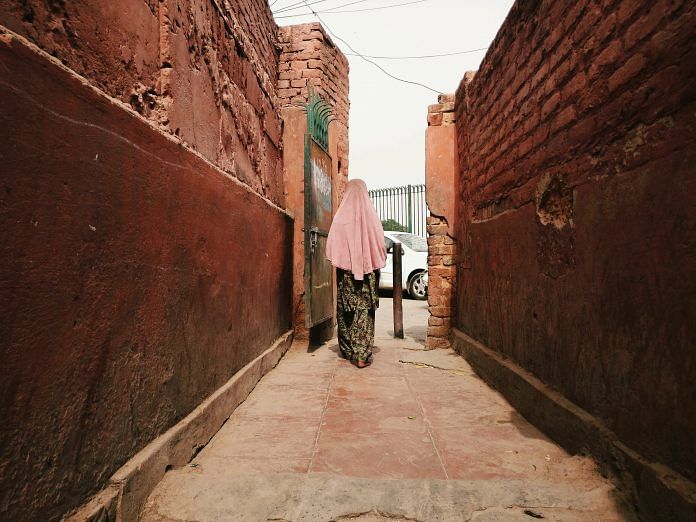

She’s 11 and in a burqa? Conditioned to behave like a domestic animal since birth. Our seculars have no answers, do they? Mental enslavement in the guise of an Arabian malady afflicting so many. Tsk tsk, if only they believed in their motherland and not a foreign psychiatric ailment…
Great article, tells the condition of street children and their daily life that how they struggle for livelihood. This is one of the major problems for our country and we have to think about on an urgent basis to make our country proud in reality.